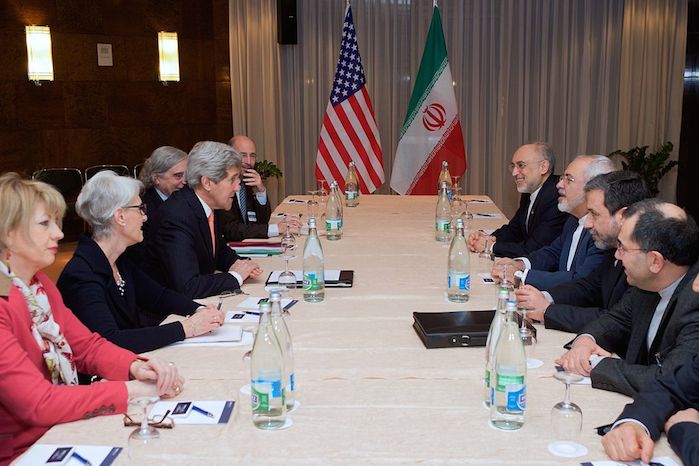Time Is Running Out to Salvage the JCPOA

Iranian President Rouhani once again made clear in his speech at the U.N. that their government won’t negotiate while the economic war continues against them:
Rouhani: "If you are sensitive to the name of the JCPOA, well, then you can return to its framework and abide by the UN Security Council Resolution 2231. Stop the sanctions so as to open the way for the start of negotiations." #UNGA
— Leila Gharagozlou (@Lghara93) September 25, 2019
Saheb Sadeghi explains why there is no support for negotiations with the U.S. inside the Iranian government:
With Trump in the White House, the Iranians have come to the conclusion that, given the confusion in U.S. foreign policy, they can only adjust their policies based on U.S. hostile behavior. Khamenei and other Iranian political officials have repeatedly pointed to the all-out U.S. economic war against Iran. They believe that Trump is seeking regime change in Iran. They suggest that through harsh economic sanctions, the United States aims to discourage the Iranian people and drag them into the streets to overthrow the government.
As a result, the Iranians consider Trump’s offer of talks a deceptive move aimed at cajoling Iran into accepting abandonment of its nuclear program as a whole, limiting its missile capabilities, establishing good relations with Israel, and giving up its support for its allied nonstate actors in the Middle East. From an Iranian viewpoint, these demands are utterly illogical; they are hostile measures aimed at weakening the country.
The administration’s demands are so excessive and far-reaching that Iran would be accepting a humiliating surrender if they agreed to them. It is understandable that they aren’t interested in making such extreme concessions, especially when they have no reason to trust this administration. Iran already made significant concessions on the nuclear issue only to find itself under severe sanctions once again, so why would they take the risk of bargaining away even more of their interests in exchange for worthless promises of relief? Every action the administration has taken towards Iran since May 2018 has been hostile. If we were in their position, we would reach the same conclusion that there is no point in negotiating with a government that seems intent on our destruction.
Iran agreed to the restrictions imposed by the JCPOA because they were promised relief from sanctions related to their nuclear program, but today they essentially have nothing to show for their compliance and patience. The other parties to the agreement have all thoroughly failed to hold up their end and the U.S. has violated all of its commitments. The JCPOA has survived this long only because Iran has been willing to remain in it without benefiting from it, and the Trump administration has been doing all it can to push them to leave. Sadeghi concludes:
If Iran declares that it will leave the nuclear deal completely in the coming months, it will constitute a major failure for all sides. Under such circumstances, not only will regional peace be at greater risk, but it will also bring back a major global security dilemma, which had abated after the signing of the deal.
The demise of the JCPOA would be a terrible outcome. It is a measure of the irrationality and recklessness of the administration’s Iran policy that this terrible outcome is what they have been seeking. If the agreement does fall apart, we can forget about Iran entering into a similar agreement for a long time to come. The other parties to the agreement have to give Iran some substantial incentives to stay in, or they will walk away before much longer.
Comments